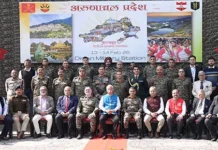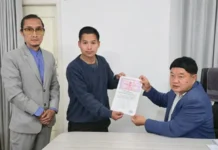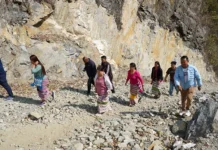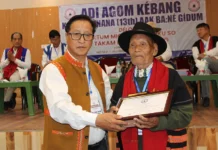ITANAGAR, 30 Apr: A scientist from the Centre of Excellence (CoE) for Bio-resources and Sustainable Development in Kimin in Papum Pare district has been granted two Indian patents for developing ‘polyherbal formulation for the treatment of painful diabetic neuropathy’ and ‘hybrid cotton patch and a method for its fabrication’.
Dr Sanjeeb Kalita, the scientist of the centre under the Arunachal Pradesh State Council for Science & Technology (APSCS&T), carried out fundamental research and development for both the inventions at Guwahati-based Institute of Advanced Studies in Science and Technology, official sources said on Friday.
Both the inventions will be having a far-reaching impact on the management of painful diabetic neuropathy and broad-spectrum uses as advanced bandage materials respectively, the sources said.
The vast indigenous knowledge systems associated with the ethnic population of Arunachal Pradesh possess a high potential for undertaking systematic, scientific studies to bring out the age-old information on sustainable utilisation of natural resources.
Under the leadership of Dr Debajit Mahanta, project director of the centre, biotechnologists are actively pursuing works on protecting the intellectual property rights of the rich indigenous traditional knowledge system of the state.
The CoE is also working on developing a framework for protecting community rights over traditional knowledge, aiming to provide benefits at the community level. The centre is also working on developing valuable inventions by translational research and development on sustainable utilisation of the rich bioresources of the state.
In this regard, a process and product patent has been filed recently by the centre on fermented organic tangerine wine from GI tagged tangerine of Arunachal and an industrially viable preparation method. The filing of patent applications for half a dozen of inventions is in process, the sources said.
“We are confident with the initiatives undertaken by the APSCS&T CoE on development of bio-resources, intellectual property rights, technology transfer, and licensing of the inventions to the prospective entrepreneurs will tremendously help and contribute towards boosting the bio-economy in the state,” said Dr Mahanta. (PTI)




